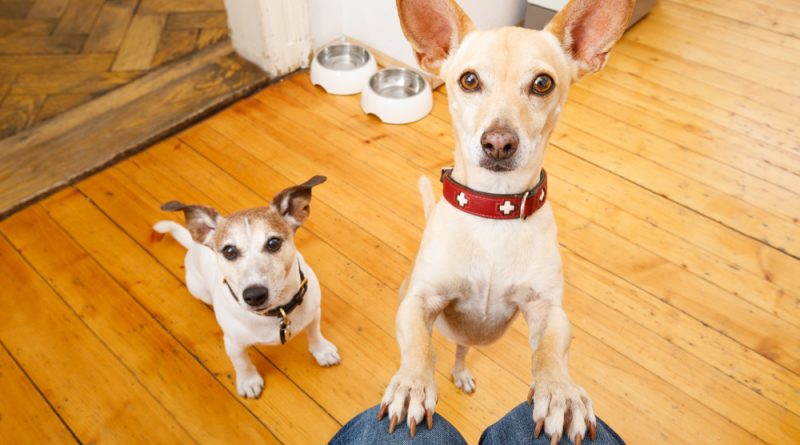Pet Obesity is a Growing Epidemic
By Karen Sturtevant, special to Pet Naturals
Obesity is a growing problem and it’s not only affecting us but our pets as well.
A recent study by Association for Pet Obesity Prevention concluded that nearly 56 percent of dogs and 60 percent of cats in the U.S. are overweight or obese––that’s over 100 million companion animals at risk of weight-related issues!
But, there are signs you can look for and steps you can take to keep your pet healthy and happy for many years to come!
Significant Health Concerns
Despite the growing prevalence of overweight cats and dogs, the majority of pet parents think their animals are just fine. They may not see the health risk that accompanies the added heft. However, excess weight and obesity can lead to more serious health conditions down the road, including:
- Development of joint issues
- Cardiovascular problems
- Compromised organ function
- Poor immune system health
- Shorter lifespans
Determining a Healthy Weight
Just as medical doctors have a universal determination of calculating a person’s body condition, veterinarians have a similar process for gauging an animal’s physical shape.
The Body Conditioning Scoring (BCS) system is used to measure fat found on specific parts of the body. BCS results help formulate a specific diet and exercise program best suited for each pet: One plan for Dasher the Dash hound, another for Peter the English bulldog. BCS scales are based on a 1-9 number system, with 5 being optimal. Emaciated or very thin animals may be scored a 1 or 2, while the severely obese register a 9.
A properly proportioned dog or cat should have an obviously visible waist. Ribs should be easily felt, but not seen. Extra tummy padding is not a fashion trend, it’s possibly dangerous. Tummies should not sag, but be firm and taut with a tucked-in-the-ribs appearance.
Food is love or Is It?
As pet parents, we tend to equate food with love and will feed out of feelings of guilt from not being home or spending less time than we’d like with our pets. Some may feel our pets will love us even more if we offer unlimited treats. Not only is overfeeding irresponsible, but the results can manifest in excess weight.
Many well-meaning pet parents are unknowingly harming their furred friends by allowing overindulgence of food, unhealthy treats and not providing opportunities for physical activity.

Consult with Your Vet
Always check with your veterinarian to rule out medical reasons (Cushing’s disease, hyperthyroidism) if your dog or cat is gaining weight. Once all medical options are cleared, an animal nutritionist or veterinarian can recommend a diet and exercise plan. Slow loss of weight is healthier and easier to maintain long term. Your dog or cat may not be happy, but his body and brain will thank you.
Take Preventative Measures
Obesity is preventable with a nutritious diet and regular exercise. Unlike animals who rely on food as means to survive, humans use food as comfort, in celebrations, during times of stress, while watching television, as a coping mechanism.
If your family has an active lifestyle, chances are your pets will too. Walking, hiking, and simple outdoor play gets our hearts pumping, muscles working and clears our busy minds. The same can be said for pets. Excess fat contributes to symptoms of mental fatigue and sluggishness. Thinking is muddy. Walking is tiring. Physical exertion is painful.
As responsible pet parents, we choose the lifestyle for our pets. We are their guide to survival, including choices on diet and physical activity. An overweight pet is not a healthy, comfortable one. Instead of showing affection with extra cookies, take Fido for a walk and get the laser pointer out for fluffy’s playtime.
Our furry friends can’t choose their menu, or when they are let outside for a good run around the park, we make those rules. Our primary responsibility as pet parents is to provide optimal care for our companions. A healthy pet is a happy pet. They deserve our best.


